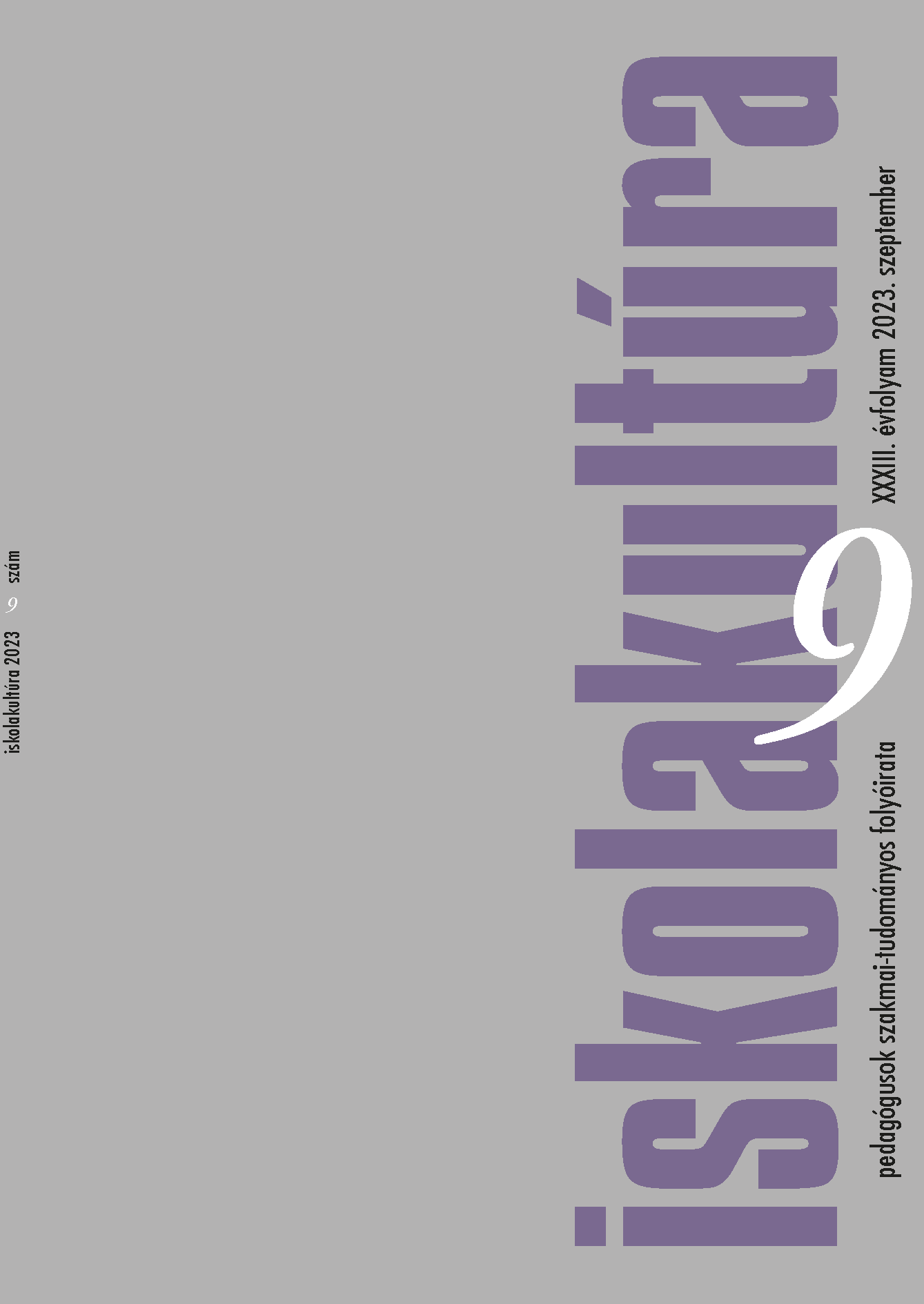Military Education and Competences Consequences of an International Literature Review
Main Article Content
Abstract
My study aims to analyse the current scientific papers, at the crossroads of military education and competences to utilize the consequences in the Hungarian training system. I made the basic corpus by using the methodology of the systematic review analysis on ScienceDirect: By doing so, I am going to introduce the main focus points and topics according to my research question, and furthermore, the knowledge fields, in which they were contextualized in the international arena. These results show the possibilities of (re)joining the contemporary publishing trends for Hungarian scholars, as there have not been any correspondent authors in the corpus with Hungarian affiliations (personally or institutionally).
Downloads
Article Details
Funding data
-
Innovációs és Technológiai Minisztérium
Grant numbers TKP2021-NVA-10
References
Madarász, T. (2013). Időszerű katonapedagógiai kérdések. Képzés és Gyakorlat, 11(1–4), 147–161.
Morgen-Owen, D. (2018). Approaching a Fork in the Road: Professional Education and Military Learning. https://warontherocks.com/2018/07/approaching-a-fork-in-the-road-professional-education-and-military-learning/
Allen, P. E., Armstrong, M. L., Saladiner, J. E., Hamilton, M. J. & Conard, P. L. (2014). Opportunities, Hurdles, Solutions, and Approaches to Transition Military Veterans Into Professional Nursing Programs. Journal of Professional Nursing, 30(6), 474–480. DOI: https://doi.org/10.1016/j.profnurs.2014.03.007
Baker, E. L. & O’Neil, H. F. (2003). Evaluation and research for technology: Not just playing around. Evaluation and Program Planning,26(2), 169–176. DOI: https://doi.org/10.1016/S0149-7189(03)00008-9
Boyce, L. A., Zaccaro, S. J. & Wisecarver, M. Z. (2010). Propensity for self-development of leadership attributes: Understanding, predicting, and supporting performance of leaderself-development. The Leadership Quarterly, 21(1), 159–178. DOI: https://doi.org/10.1016/j.leaqua.2009.10.012
Brilingaitė, A., Bukauskas, L. & Juozapavičius, A. (2020). A framework for competence development and assessment in hybrid cybersecurity exercises. Computers & Security, 88, 101607. DOI: https://doi.org/10.1016/j.cose.2019.101607
Burmaoglu, S. & Sarıtas, O. (2017). Changing characteristics of warfare and the future of Military R&D. Technological Forecasting and Social Change, 116, 151–161. DOI: https://doi.org/10.1016/j.techfore.2016.10.062
Fernandez-Osorio, A. E., Miron, M., Cabrera-Cabrera, L. J., Corcione-Nieto, M. A. & Villalba-Garcia, L. F. (2023). Towards an effective gender integration in the armed forces: The case of the Colombian Army Military Academy. World Development, 171, 106348. DOI: https://doi.org/10.1016/j.worlddev.2023.106348
Garofano, J. (2008). Effective Advice in Decisions for War: Beyond Objective Control. Orbis, 52(2), 238–254. DOI: https://doi.org/10.1016/j.orbis.2008.01.005
Hăhăianu, F. & Manasia, L. (2014). Socio-emotional Intelligence for Successful Higher Military Education. A Case Study Approach. Procedia - Social and Behavioral Sciences, 142, 389–395. DOI: https://doi.org/10.1016/j.sbspro.2014.07.697
Heyler, S. G., Armenakis, A. A., Walker, A. G. & Collier, D. Y. (2016). A qualitative study investigating the ethical decision making process: A proposed model. The Leadership Quarterly, 27(5), 788–801. DOI: https://doi.org/10.1016/j.leaqua.2016.05.003
Juhary, J. (2015). Understanding Military Pedagogy. Procedia – Social and Behavioral Sciences, 186, 1255–1261. DOI: https://doi.org/10.1016/j.sbspro.2015.04.104
Kamarási V. & Mogyorósy G. (2015). Szisztematikus irodalmi áttekintések módszertana és jelentősége. Segítség a diagnosztikus és terápiás döntésekhez. Orvosi Hetilap, 156(38), 1523–1531. DOI: https://doi.org/10.1556/650.2015.30255
Kočote, I. & Smirnova, T. (2016). Aspects of Military-related Text Translation from English into Latvian. Procedia - Social and Behavioral Sciences, 231, 107–113. DOI: https://doi.org/10.1016/j.sbspro.2016.09.078
Lester, P. B., Lester, G. V. & Saboe, K. N. (2018). Resilience within the workplace: Taking a cue from the U.S. military. Organizational Dynamics, 47(4), 201–208. DOI: https://doi.org/10.1016/j.orgdyn.2018.01.005
Mészáros, A. & Szalóki, R. (2022). The need and opportunities for developing emotional intelligence in education. Opus et Educatio, 9(4), 300–310. DOI: https://doi.org/10.3311/ope.526
Miller, J. W. & Tucker, J. S. (2015). Addressing and assessing critical thinking in intercultural contexts: Investigating the distance learning outcomes of military leaders. International Journal of Intercultural Relations, 48, 120–136. DOI: https://doi.org/10.1016/j.ijintrel.2015.07.002
Njelezi, M. T. (2023). Education in values: An analysis of teachers’ role in Mozambican military higher education. Heliyon, 9(6), e17226. DOI: https://doi.org/10.1016/j.heliyon.2023.e17226
Peveri, J. (2022). The wise, the politician, and the strong man: Types of national leaders and quality of governance. Journal of Comparative Economics, 50(4), 849–895. DOI: https://doi.org/10.1016/j.jce.2022.06.001
Rokvić, V. & Stanarević, S. (2016). Toward gender and LGBT equality in the Serbian armed forces. Women’s Studies International Forum, 55, 26–34. DOI: https://doi.org/10.1016/j.wsif.2016.02.003
Scultetus, A. H., Villavicencio, J. L., Koustova, E. & Rich, N. M. (2006). To Heal and to Serve: Military Medical Education Throughout the Centuries. Journal of the American College of Surgeons, 202(6), 1005–1016. DOI: https://doi.org/10.1016/j.jamcollsurg.2006.02.010
Tenorth H.-E. (2018). Tényekre alapozott oktatáskutatás versus a pedagógia mint kultúratudomány – egy újabb „paradigmaharc” a tudományos pedagógiában. Pedagógiatörténeti Szemle, 4(3–4), 23–44. DOI: https://doi.org/10.22309/ptszemle.2018.3.2
Tontz, P. A., Reyes, J. & Taylor, Z. (2023). Impact of military nurse instructor on the academic performance of eligible corpsman in an online NCLEX-PN training program. Teaching and Learning in Nursing. DOI: https://doi.org/10.1016/j.teln.2023.06.010

